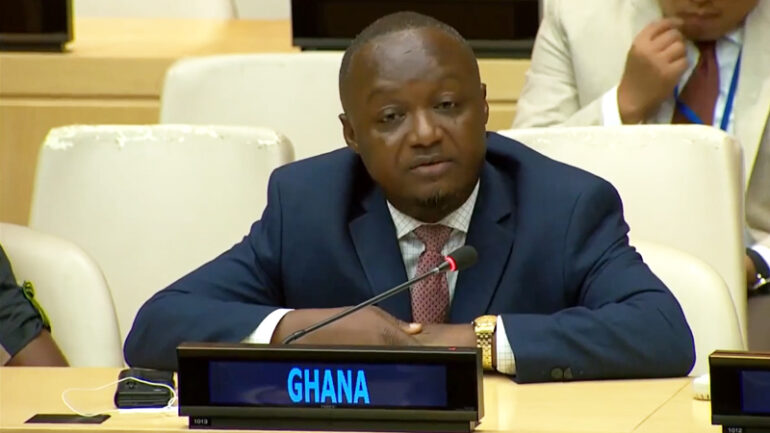Arria-Formula Meeting on Penholdership System

- Posted by admin
- Posted in Statement & Remarks
Chairperson,
Thank you for the opportunity to contribute to this important discussion on the vexed issue of the system of pen-holdership in the Council. My delegation welcomes the convening of this Meeting and is pleased to align itself to the statement to be delivered on behalf of the 27 members of the Accountability, Coherence and Transparency group (ACT). We believe that beyond the ACT group, which strongly advocates improvements to Council working methods, there is a huge interest by the wider membership of the United Nations to have the frontiers of the issues of transparency, accountability and efficiency expanded within the Security Council. As we all recognise, penholders play an important role in the functioning of the work of the Council through the leadership they provide for the crafting of Council processes and products. That leadership role is however expected to be done transparently and with accountability to all Council members. While there
is merit in having consistency in penholders, there is also the need to have diversity and to ensure inclusivity with the manner Council products such as resolutions, presidential statements and press statements are drafted as well as the general approach adopted by penholders in negotiating outcomes.
It is in this context and mindful of the practice of the Security Council since its creation, that Ghana believes, consistent with Note 507, that all members of the Council should be able to exercise the liberty to ‘pick up the pen’ to draft Council outcomes or products, whenever it is necessary, including calling meetings and leading negotiations. As Note 507 asserts in the relevant parts ‘‘more than one Council member may act as co-penholders, when it is deemed to add value, taking into account as appropriate the expertise and/or contributions of Council members on the subjects’’. This provision of Note 507 signals the recognition that at all times, the collective ambitions, experiences and knowledge of Council members, including member states that have a close connection to the issue or file, ought to be leveraged in drafting and negotiating outcome documents of the Council.
Chairperson,
It is no secret that members of the Council, the elected members particularly, have had good cause to question the penholder system. Admittedly, these concerns have been extensively and forcefully highlighted by the E-10 and other delegations during the annual open debate of the Council on Working Methods and in other informal settings, with the expectation of redress.
Ghana is convinced that the time has come to further democratize or demystify the penholdership system, an action which portend opportunities for ensuring efficiency and equitable burden-sharing of the enormousresponsibilities entrusted to the Council by the Charter. To this end, I would like to make the following recommendations:
Firstly, co-penholdership arrangement should be actively encouraged for all the files on the agenda of the Council. There are notable examples including the Syria Humanitarian file (co-pen by Ireland & Norway), Haiti (by Mexico & United States), Ukraine (by Mexico & France), UNOWAS (by Ireland & Ghana) and Maritime Security (by Norway & Ghana). These co-penholderships have served the Council well and have produced useful lessons, which can be applied to other situations. It is important that as a Council, we collectively work to explore new avenues to expand and
sustain these arrangements.
Secondly, adopting an informal set of commitments or code of conduct for penholders may help the Council effectively tackle the repeated accusations made against penholders of exploiting their unique role as initiators or drafters of Council products to either mount diplomatic and political pressure or stifle views of the affected country, views of Council
members, regional and key actors.
Lastly, penholders and co-penholders should recognise that trust and confidence-building measures involving all Council members, without selectivity elicits constructive engagement. We therefore suggest that the drafting and negotiation process, should be characterised by an extensive, exhaustive, transparent, inclusive process of consultations and timely
exchange of information.
Chairperson, Colleagues,
In conclusion, let me underscore that working methods is at the heart of the effective functioning of the Security Council, as envisaged under Article 30 of the Charter. It is Ghana’s expectation, therefore, that the Council will use its wellestablished framework, the Informal Working Group on Documentation and Other Procedural Question (IWG), to follow up on the three (3) recommendations we have submitted as it is evident that a fairer, dynamic and a responsive penholder system or division of labour among the members of the Council, in an equitable manner, will guarantee the collective ownership and ensure the legitimacy of Council products and decisions.
I thank you.
